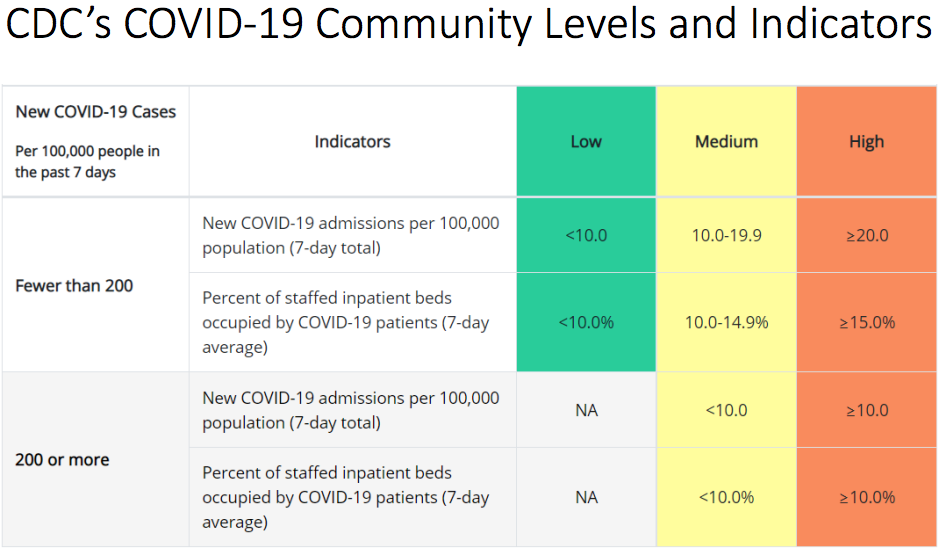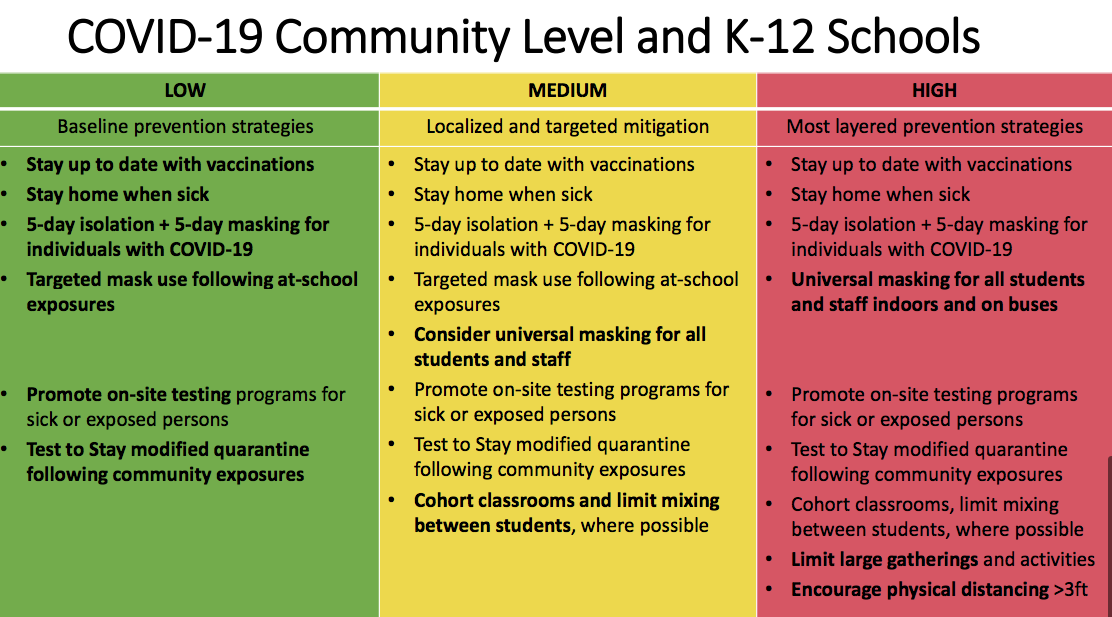Gov. Andy Beshear and Department for Public Health Commissioner Dr. Steven Stack discussed Friday’s updated guidance and data from the U.S. Centers for Disease Control and Prevention (CDC) and provided information on living as safely as possible with COVID.
The CDC is now using a new “community transmission” model that uses the number of new COVID-19 cases at a county level, percent of hospital capacity devoted to COVID-19 patients and the number of new patients with COVID admitted to the hospital in the past week. This data is produced, mapped, and will be updated weekly at the county level on the CDC website.
The Kentucky Department for Public Health (KDPH) will take the data file produced by the CDC and use it to generate a three-tiered, stoplight-colored map that will be posted on kycovid19.ky.gov to make it easy for Kentuckians to quickly see the transmission level for their own county. This will be updated weekly when the CDC shares and posts its new data.
Kentuckians are strongly encouraged to align their personal mitigation measures to the risk level of their county and the matching guidance in this table:
KDPH will also update its K-12 school guidance. Vaccination, disease isolation, targeted mask use and test-to-stay programs are strongly encouraged. Detailed documents to provide further details for schools are currently being revised to align with new CDC guidance.
Gov. Beshear also announced that masks are no longer required in state office buildings. However, the following agencies will continue to require face coverings: Kentucky Department of Veteran Affairs-run nursing homes; Department of Corrections correctional institutions; Cabinet for Health and Family Services-run psychiatric hospitals and immediate care facilities; agencies providing food, beverage and housekeeping services; and other congregant settings as determined by an agency’s appointing authority.
“I ask everyone to be thoughtful about your and your family’s personal safety. If you have pre-existing conditions, consider continuing to mask up. If you interact with the public a lot, consider continuing to mask up,” said Gov. Beshear. “To everybody, let’s be respectful and even encouraging of people’s decision that they want to continue to mask.”
The Governor and Dr. Stack also said baseline guidance for living safely with COVID includes:
• Get vaccinated;
• Keep up to date with vaccine boosters;
• Isolate when sick or after testing positive for COVID-19;
• Consider targeted mask use following exposures and for high-risk persons; and
• Follow applicable state and local guidance.
“Fortunately, our COVID-19 numbers still heading in a good direction,” said Dr. Stack. “As we look to the third year of the pandemic, we have arrived at a very different place than where we started. Now, effective vaccines, boosters, treatments and tests are widely available. These tools lessen the individual and societal severity of COVID-19.”
COVID-19 Case Information, Vaccinations Update
Number of people who have received at least one vaccine dose in Kentucky: 2,882,345
Number of people who have received their vaccination booster in Kentucky: 1,076,684
Feb. 26, Cases: 1,602
Feb. 26, Deaths: 42
Feb. 27, Cases: 481
Feb. 27, Deaths: 22
New Cases Today: 671
New Deaths: 34
Today’s Positivity Rate: 8.56%
Current Hospitalizations: 962
Current Intensive Care Admittances: 203
Currently on Ventilators: 112
During the week ending Feb. 27, 13,305 cases were reported in Kentucky and the average test positivity rate was 9.01%.
On Monday, Boone County reported 37 new cases, Kenton County 27 and Campbell County 19.
Dr. Stack also warned Kentuckians about Multisystem Inflammatory Syndrome (MIS-C), a rare but serious condition that occurs two to six weeks after COVID-19 infection. MIS-C occurs most often in school-age children and can also occur after asymptomatic or mild COVID-19 illness. To prevent MIS-C, Kentuckians must prevent the spread of COVID-19 and lessen its impact by getting vaccinated. Improving statewide vaccination rates of school-age children is key to protecting them from this potentially devastating complication.





















